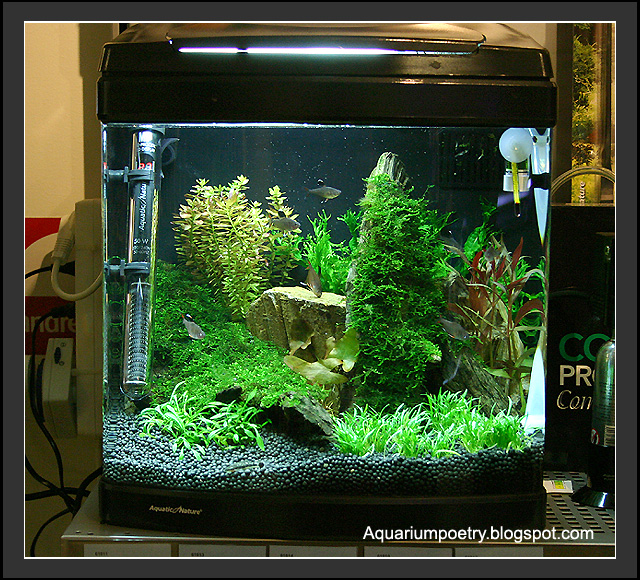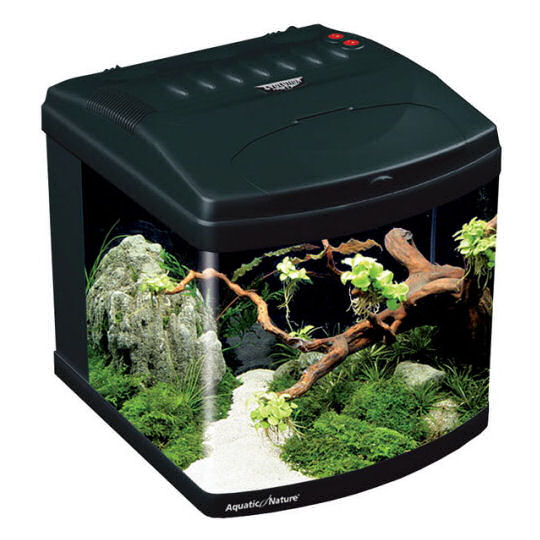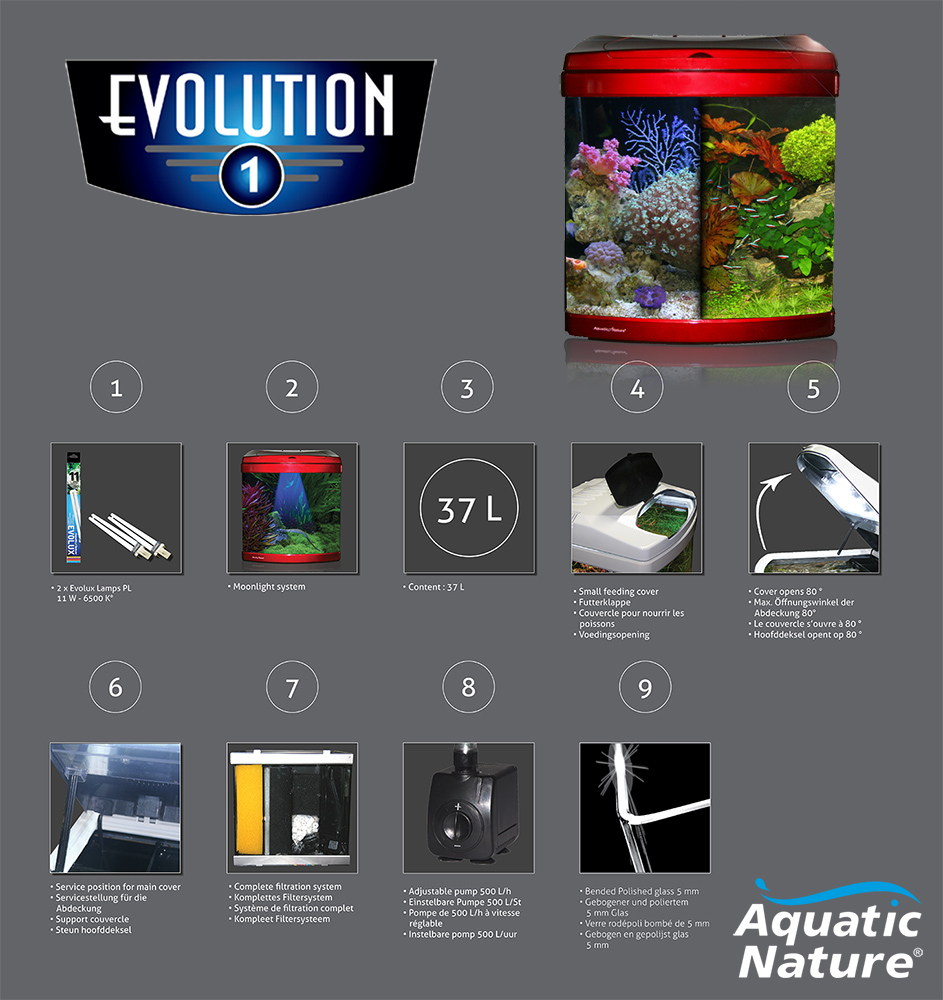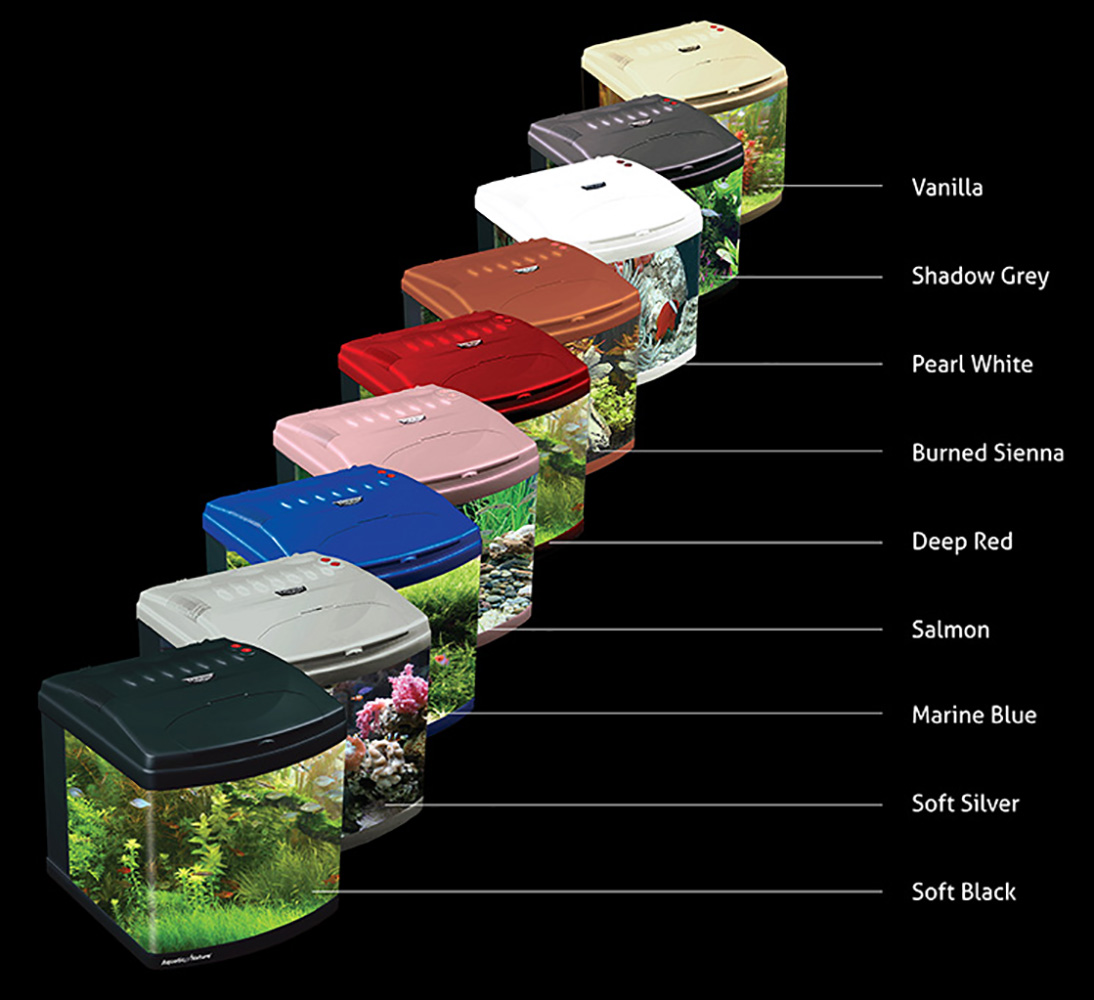Start av ett nano saltvattensakvarium del 1 Skövde Akvarieförening

My Aquariumscapes 37 liter planted nanocube
16 Citations 976 Altmetric Metrics Abstract Penguins lost the ability to fly more than 60 million years ago, subsequently evolving a hyper-specialized marine body plan.

Nanoakvarium Aquatic Nature Evolution nanoakvarium.se
Major paleontological discoveries in the past 40 years have clarified the early land-sea transitions for some marine tetrapods (e.g., whales, sea cows), although the terrestrial origins of many lineages remain obscure.

Aquatic Nature Evolution Pearl White Aquarium 40x35,5x39 37L Wit
"Aquatic evolution: Nature Wonders". Nature is the physical world or universe, encompassing all living and non-living things. It refers to the phenomena of t.

Aquatic Nature Aquarium Evolution Shadow Grey
The earliest fossil evidence for sharks or their ancestors are a few scales dating to 450 million years ago, during the Late Ordovician Period. Emma Bernard, a curator of fossil fish at the Museum, says, 'Shark-like scales from the Late Ordovician have been found, but no teeth. If these were from sharks it would suggest that the earliest forms.

Ocean Giants Going Aquatic Cetacean Evolution Nature PBS
An international team of 40 researchers analyzed the genomes—the complete set of DNA—of all living and recently extinct penguin species and combined this with the fossil record to gain new insights.

Aquatic Nature Evolution Shadow Grey
The "aquatic ape hypothesis" is one of these, now championed by Sir David Attenborough in his recent BBC Radio 4 series The Waterside Ape. The hypothesis suggests that everything from walking.

Aquatic Biomes Create WebQuest
Discovery opens up new path in study of marine evolution and biodiversity. New UCLA research indicates that an evolutionary phenomenon never before observed among marine life could help explain why there is such immense biodiversity in the world's coral reefs and the ocean beyond. Two studies — one of reef-dwelling marine snails, the other.

Aquascapingforum • Toon onderwerp Aquatic Nature Evolution
238 Citations 262 Altmetric Metrics Abstract Although the first ten million years of whale evolution are documented by a remarkable series of fossil skeletons, the link to the ancestor of.

Aquarium Evolution Vanilla Aquatic Nature
This speed comes from 3 billion years of evolution and natural selection, allowing them to capture prey efficiently and achieve an image of dominance in the underwater ecosystem [3][4]. Though the human race places high value on speed for different reasons - convenience, efficiency, and productivity - scientists are looking to this.

Aquatic Nature Evolution Shadow Grey
A groundbreaking study has found that evolution is not as unpredictable as previously thought, which could allow scientists to explore which genes could be useful to tackle real-world issues such.

Start av ett nano saltvattensakvarium del 1 Skövde Akvarieförening
Key Findings: Elongated fins use same mechanical motion to optimize speed across eight animal groups Necessity triumphed over chance in developing vital trait, researchers say Rare instance of.

Aquatic evolution YouTube
Three major stages of humerus shape evolution: from the blocky humerus of aquatic fish, to the L-shape humerus of transitional tetrapods, and the twisted humerus of terrestrial.

Teknik Skövde Akvarieförening
The aquatic ape hypothesis ( AAH ), also referred to as aquatic ape theory ( AAT) or the waterside hypothesis of human evolution, postulates that the ancestors of modern humans took a divergent evolutionary pathway from the other great apes by becoming adapted to a more aquatic habitat. [1]

Aquatic Nature YouTube
April 16, 2012 A gorilla in the Congo wading in a swamp Image courtesy of Wikicommons The aquatic ape theory, now largely dismissed, tries to explain the origins of many of humankind's unique.

"nature evolution" Garnalenforum BE
Between 390 and 360 million years ago, the descendents of these organisms began to live in shallower waters, and eventually moved to land. As they did, they experienced natural selection that shaped many adaptations for a terrestrial way of life.

Evolution of aquatic organisms, 19th Century illustration Stock Image C037/9610 Science
Dear Editor, Long after the common ancestor of all terrestrial verte-brates crawled to land from the sea during the Late Devo-nian, a small fraction of their descendants returned to aquatic.